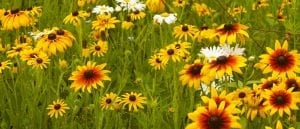Rescued Through Early Detection (Revisited)
Hear a follow up interview with Dan “Dry Dock” Shockley, a hereditary cancer advocate, Navy Veteran and AFAP survivor.
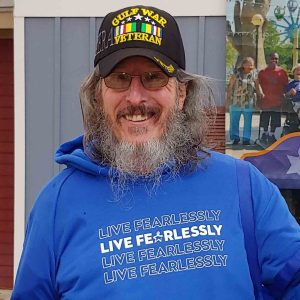
Meet Dan Shockley, aka Dan “Dry Dock” Shockley, a retired Navy veteran who was saved from colon cancer through early detection 13 years ago and now serves as an outspoken patient advocate for hereditary colon cancer and ostomy awareness.
Dan has a rare genetic condition called AFAP (Attenuated Familial Adenomatous Polyposis), which increases the chance of colon cancer and impacts an estimated .03 percent of the global population.
Four years ago, we featured Dan in the story of hope, “Rescued Through Early Detection,” on Hope Has Arrived. His story highlights the importance of early detection, hereditary cancer research and also having hope and faith. To see how he got the name “Dry Dock,” skip to the fourth question.
Check out the follow up interview with Dan recently conducted by Hope Has Arrived founder and executive director Chris Lawrence.
Q: Great to see you again Dan. It’s been four years since I last interviewed you. How have you been doing?
I’ve been doing great since we last spoke. Overall, I am very blessed. There is plenty to update you on, with my patient advocate work as well as my health journey.
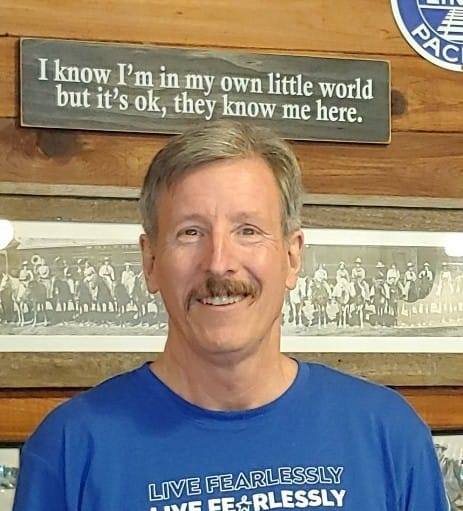
Q: Let’s skip right to that. How is your health?
I’m doing great. I had a major surgery in 2021, after an endoscopy revealed that I had a 3-centimeter adenoma (precancerous tumor) near my pancreas. Based on my health history, they recommended I get a surgery called a pancreas sparing duodenectomy resection. I know that’s a lot to digest, no pun intended, but it’s less invasive than a Whipple Surgery. I lost a lot of weight but later gained it back. Today I feel great, and I continue to remain cancer free because of early detection and surgeries like this.
Q: For those who don’t know about your original health journey, can you share a little more?
Around age 50 I decided to get my first and only colonoscopy. My GI doctor found more than 100 polyps embedded in my colon and I was later diagnosed with AFAP and had an ostomy surgery. Early detection saved my life! And hereditary research also helped them catch my recent issue. I am very blessed to be here 13 years later!
Q: Can you share a little more about your career in the Navy and how you got the nickname “Dry Dock”?
I’ve been deployed four different times and I’ve been on seven different ships. For three of those deployments, I was in the Persian Gulf. During one of them, I sat in dry dock for more than 12 months—which is how I earned the nickname “Dry Dock.” My military background has helped equip me to adapt, improvise and overcome the challenges I have faced.
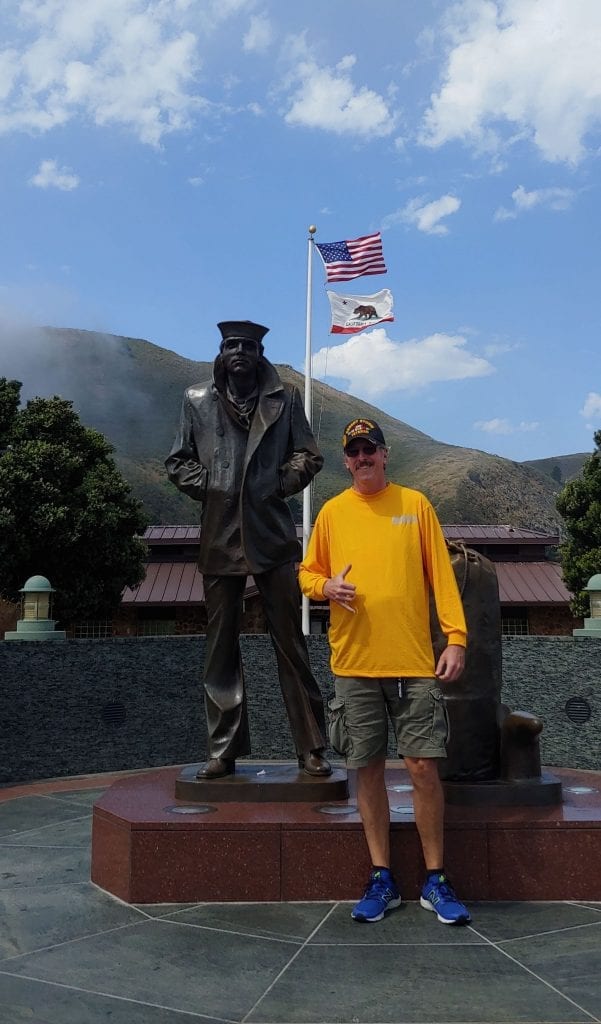
Q: As a patient advocate, you get the opportunity to share your story widely. How has that been going?
Like a woodpecker in a petrified forest, I’m always looking for opportunities to share my story and help spread awareness for early detection and for ostomates. So far, I’ve been interviewed at least 50 times, appearing on more than 32 podcasts and 18 articles, including Hope Has Arrived. There are more that will be coming up, too.
Q: What other advocacy work have you been doing?
I have served as a live case presentation for Stanford Medical School with over 90 medical students, and I was also invited to do this at Harvard as well. The past year, I also presented two Senate Resolutions for the State of California. As a result, the first Saturday of October was designated as Ostomy Awareness Day (which passed 37-0) and the third week of June as AFAP awareness week. I will continue to advocate for these each year!
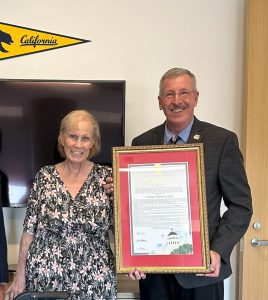
Q: What drives you to continue with this work?
I want to continue the legacy of Dr. Henry Lynch, who was a world-renowned leader in hereditary cancer research. He is the one who discovered AFAP, and I got to meet him after my diagnosis. Medical technology continues to advance with early detection and genetic testing, and I am living proof, yet there is still more to be done.
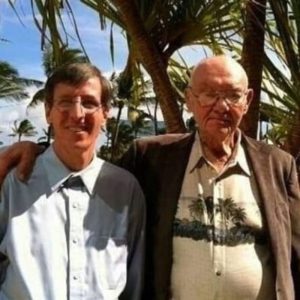
Q: Besides your advocacy, what else is giving you life these days?
I love gardening and I consider myself an amateur botanist. In the winter we have snow peas, carrots and beets. In the summer, I grow pumpkins, gourds, Indian corn and garlic. I’ve been doing a lot of experimenting and I’m just having a lot of fun with it.
Q: You have mentioned the importance of hope and faith when facing a health journey. Can you share more?
Faith is related to hope, because faith is having hope in something. I put my hope in God. I love the book of Hebrews from the Bible that talks about faith. The acronym I like to use is FAITH: F-full A-assurance I-influenced T-through H-hope. Faith is believing in what you can’t see. It’s like looking out the window and seeing the branches swaying. You can’t see the breeze, but you can see the effect of it.
Q: How has your faith and relationship with God given you hope as you have faced this journey?
I felt a peace and calm, even when my circumstances were anything but calm. When you put your trust in God, he is going to guide you through the twists and turns of life. My focus is on God which directly affects my ability to maintain a positive attitude. I’m blessed beyond measure, and I couldn’t face this journey without his help.
If you would like to learn more about to begin a relationship with God, read Knowing God Personally.
For more help with finding strength outside of yourself, read Asking God for Help.
I have a question or comment
How to find God’s hope, strength and peace
